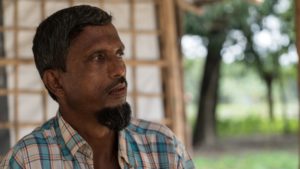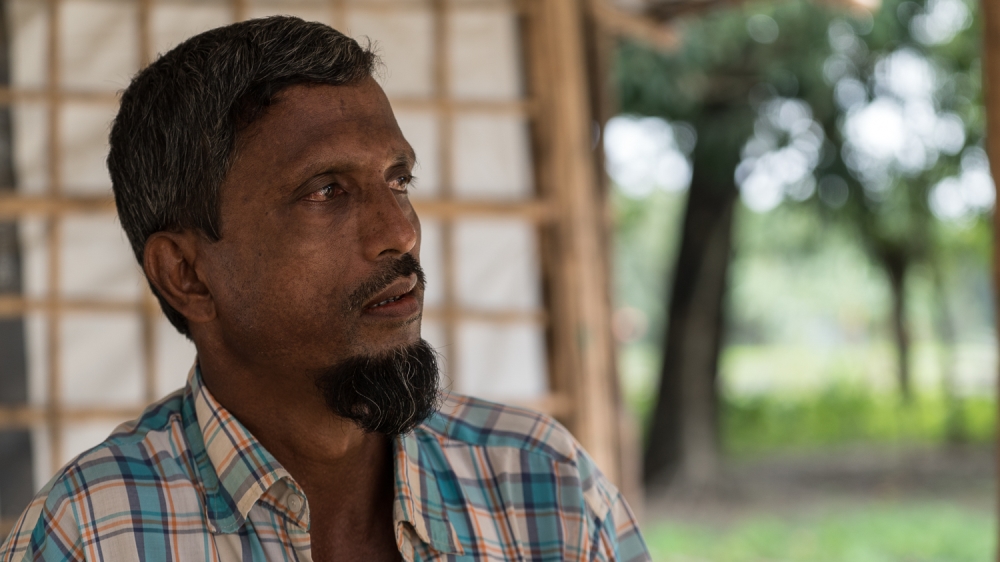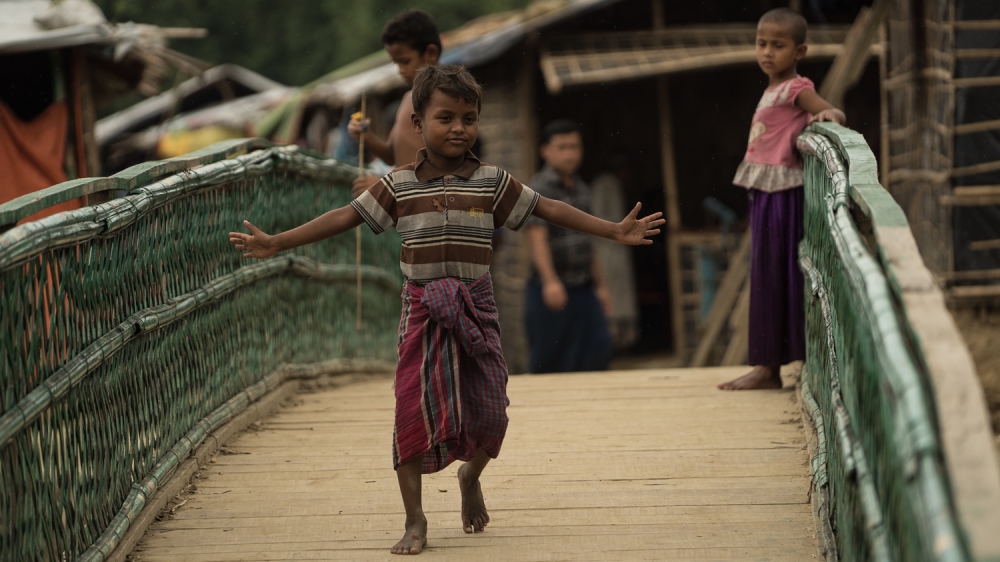
Displaced Rohingya Still Suffer Without Work In Bangladeshi Camps
Cox’s Bazar, Bangladesh – Wearing a blue and white-checkered lungi tied around his waist, Nur al-Amin looks at a narrow muddy canal passing along rows of tarpaulin-roofed bamboo shacks.

“There is no work here and nothing to do,” he says, recounting his monotonous routine.
“I wake up at dawn to pray, I read Quran, I take naps, I wait for the aid agencies to come,” adds al-Amin, who is in his mid-40s.
“That’s daily life.”
Al-Amin is one of the 4,600 displaced Rohingya people stuck in improper conditions at a camp in no-man’s land located on the Myanmar-Bangladesh border, called by locals as Zero Point.

The camp’s residents have not received any refugee status, as the area where they have been taking shelter for almost a year now comes officially under Myanmar control – but a fortified border fence rigged with a lot of landmines makes a return to their villages in their home Rakhine state an highly impossible mission.
Two times for every month, a assigned team by the International Committee for the Red Cross reaches here with provisions for the displaced Rohingya.
The Rohingya are allowed to cross a newly-built wooden bridge into Tambru checkpoint to take aid items under strict survelliance of the Bangladesh Border Guards (BGB), as well as carry out their necessary shopping at Tambru village.
The BGB and these Rohingya people have a mutual understanding that the latter will certainly return to the camp on the other side.
Lieutenant Colonel Monzural Hassan Khan, the local commanding BGB officer, says it is simply a “matter of convenience” to allow the Rohingya from no-man’s land to gain entrance into Bangladeshi territory.
“If they can’t come to this side, then how can they collect their rations from the international community?” he says.
“Although they are Myanmar nationals, they move around inside our land but don’t go far.”
Al-Amin, a farmer by profession, used to have his own paddy fields in his village of Panipara in Muangdaw Township in Myanmar, this is the third time that he was forced to experience displacement.
The first such displacement was in the year 1978, when he was still a child and had to spent atleast a year at a refugee camp in Bangladesh after successfully escaping anti-Rohingya violence by Myanmar’s authorities. Then in 1992, he was forced another time to flee and ended up living as a refugee for eight years.
And the third such displacement occurred last year, on August 27, when he and his whole family fled a Myanmar army crackdown in Rakhine state, which the UN said amounted to ethnic cleansing – an accusation to which Myanmar denies.
The mass exodus came soon after the military launched a dirty counteroffensive following attacks on police and army posts by Arakan Rohingya Solidarity Army (ARSA), a small group of men fighting in Myanmar’s western region of Rakhine.
Till date, over 700,000 Rohingya – a majority-Muslim ethnic group often called as “the world’s most persecuted minority” – had to face displacement and now populate several refugee camps in Bangladesh’s Cox’s Bazar.
“Two of my sons were injured by mine blasts, one in the head and the other in the chest,” al-Amin says. “They are now doing better, after a long treatment at the local Bangladeshi hospital on the other side.”
You May Also Read: US, Turkey To Resolve ‘Pastor’ Issue With In Few Days: Pompeo